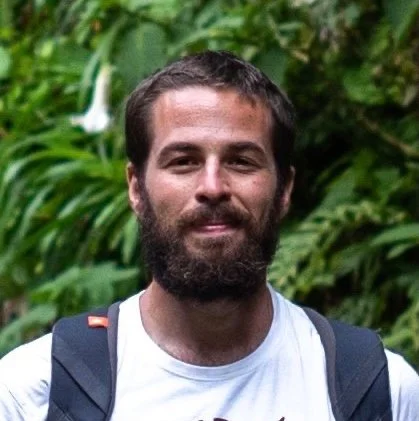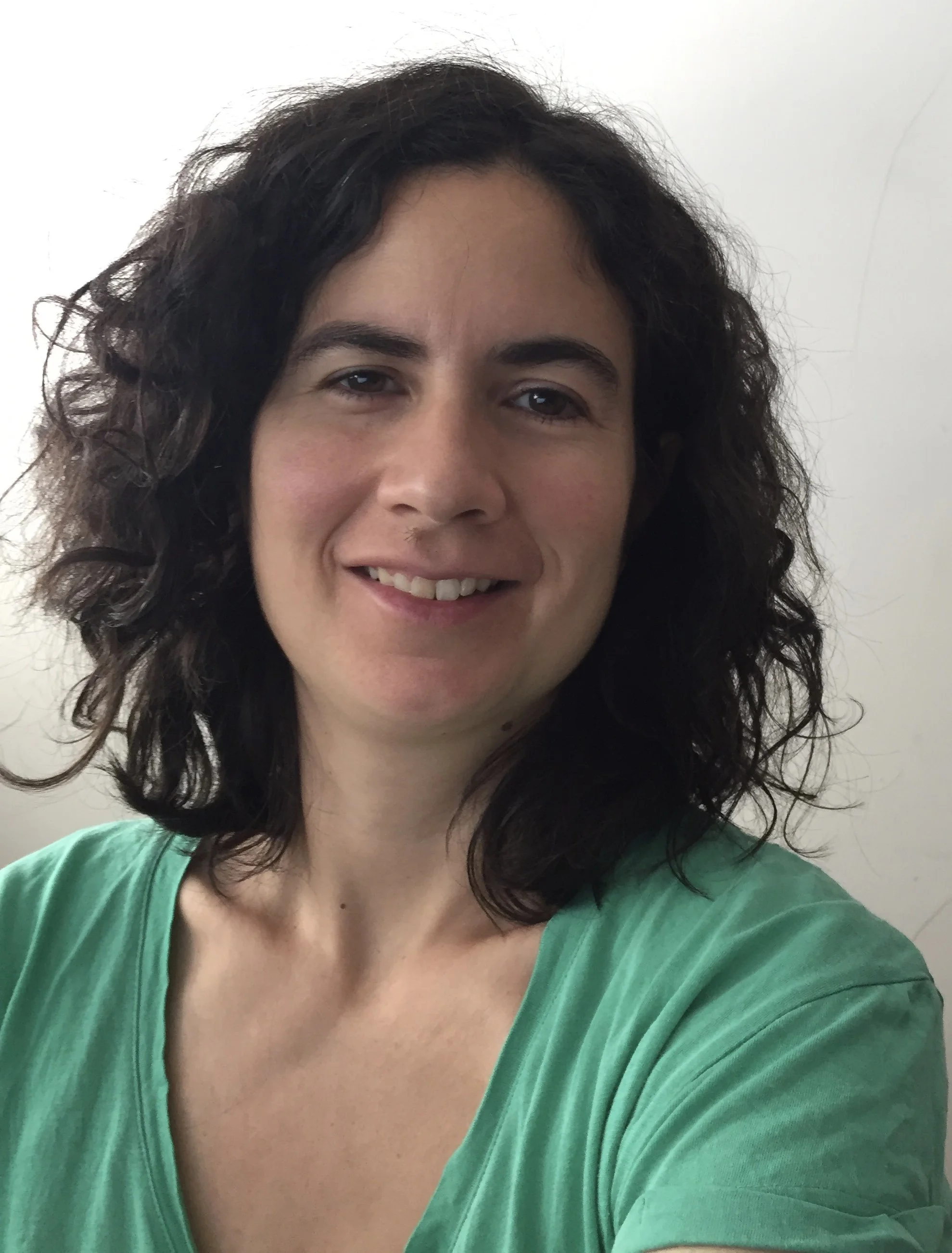We are a group of scientists across six international institutes from UK, Portugal, Spain and South Africa (PML, FC.ID, CSIC, IPMA, ULPGC, CSIR) working in topics related to satellite remote sensing tools, earth system numerical modelling and in situ observation of the ocean to explore how biology and physics interact in all Atlantic EBUS in the context of ongoing climate change. The team includes scientific, operational and monitoring early-adopters, leading global and regional EO data production or working within the Atlantic upwelling regions.
PROF STEVE GROOM. Head of Science at PML, leading the EO science and applications area, and Director of the NERC EO Data Acquisition and Analysis Service (NEODAAS) in Plymouth (UK). He has over 35 years’ experience in the application of remote sensing to explore marine and coastal processes, including near-real time and operational EO, biological processes in the eastern Mediterranean, coccolithophore blooms, HABs, airborne remote sensing, web-based visualisation, and integration of data. He was PI of over 50 commissioned research projects funded by ESA (including PRIMUS), NERC, EU, Copernicus and Ministry of Defence. More info.
DR SHUBHA SATHYENDRANATH. Internationally renowned scientist, recognised for her work on deriving carbon pools and fluxes from remote sensing. She leads the ESA OC-CCI project and led the ESA BICEP project. She has been working on the estimation of primary production from satellite remote sensing for nearly 40 years, publishing high profile papers such as in Science (Sathyendranath et al. 1991) along the way. She is also an expert in the detection of phytoplankton functional types from space, while also working on detection of particulate organic carbon and phytoplankton carbon from space. More info.
DR BROR JONSSON. Senior researcher at PML with expertise in biogeochemistry and Lagrangian methods, and broad experience in geospatial data science and geospatial Machine Learning approaches including clustering and classification. He also uses linear and nonlinear methods to develop algorithms and empirical models in marine and biological systems, while exploring database and web development with a focus on scientific applications. Create end-to-end data workflows from source to presentation. Retrieve, process, analyze, and present data from scientific instruments. More info.
DR GAVIN TILSTONE. NERC Merit Scientist with over 25 years’ experience in the fields of optics, phytoplankton, photosynthesis, primary production and remote sensing ocean colour. His research at PML focuses on satellite ocean colour validation and algorithm development, water quality (including detecting HABs) and quantification of the marine carbon cycle. His work has generated impact in policy implementation using primary production derived from EO, currently leading a team of optical and remote sensing scientists working within International and UKRI projects. More info.
DR STEFANO CIAVATTA. Leader of the “Biogeochemical Data Assimilation” team at PML and UK National Centre for EO (NCEO), with 20 years of experience in developing data assimilation systems for shelf-sea ecosystem models and ocean colour (including phytoplankton functional types) and in situ data (including continuous, real-time biogeochemical data) for both model state and parameter estimation. He is co-chair of the Marine Ecosystem Analysis and Prediction Task Team of the OceanPredict international organization and member of the Science Board of Mercator Ocean International. More info.
DR TOM JACKSON. Ocean Colour scientist at PML with expertise in phytoplankton community structure, photophysiology and primary production in the Atlantic Arctic, with 10 years experience in ocean colour research. His interests include the creation and validation of EO data and ocean colour products, the improvement of bio-optical algorithms and primary production models, and the response of phytoplankton to climate forcing. He currently works as a Researcher & System Engineering lead in the OC-CCI+, Pi of the OMAPS, project lead for EUMETSAT and scientific lead for C3S. More info.
DR PETER LAND. Scientist at PML with 35 years of experience in remote sensing, EO and in situ and laboratory measurements of water and aerosols, including work on uncertainty modelling, air-sea fluxes of CO2 and DMS, ocean acidification, primary production, coccolithophores, phytoplankton phenology and algorithm development, and extensive experience with the analysis of large spatiotemporal data sets. He has been recently involved in several projects within ESA (OceanSODA, AMT4OceanSatFlux, OceanFlux Evol.), NERC (PICCOLO, SWEEP, RAGNARoCC) and EU (JMP EUNOSAT). More info.
DR GEMMA KULK. Specialist in the photophysiology and PP of marine phytoplankton. Over the past 10 years, Gemma has combined laboratory experiments with field measurements in the North Atlantic Ocean, Mediterranean Sea, the Arctic Ocean and the western Antarctic Peninsula to study the response of marine phytoplankton to changing environmental conditions, and their role in the ocean’s carbon cycle. At PML, Gemma studies long term trends in global PP using ocean colour remote sensing. More info.
KIM HOCKLEY. Project Manager with experience managing EO projects and recently (2020) achieved Prince2 Practitioner certification. She currently manages H2020 CERTO project, bringing together nine partners from across Europe; EUMETSAT Copernicus Marine Ocean Training Contract, providing training courses on using Sentinel-3 ocean observation data; and Copernicus Climate Change Service (C3S) European Fisheries. More info.
PROF VANDA BROTAS. Marine biologist with a broad experience in topics related to marine ecology, including spatio-temporal dynamics of marine phytoplankton, phenology of the phytoplankton spring bloom and validation of satellite ocean colour with in situ data. Currently works as a senior researcher at MARE-FC.ID, full professor at FCUL, and visiting professor at PML. She is currently leadingH2020 PORTWIMS project, has been the PI of several national funded projects and the Portuguese representative of EU-funded projects and ESA-projects. More info.
DR CATARINA V. GUERREIRO. Marine biogeoscientist at FCUL (MARE & IDL), with expertise in coccolithophore signatures from sediments and water column in present-day marginal to open-ocean environments, and their role in the biological carbon pump. After her PhD, she started to investigate the effects of Saharan dust on coccolithophore production across the tropical Atlantic, for which she gained a MSC-COFUND to work in Germany (2015), and an MSCA to work at MARE (2018), where she is currently expanding her dust-related research with her new project CHASE (FCT-CEEC). More info.
DR ANA BRITO.Marine biologist with expertise in marine phytoplankton ecology, and broad experience using remote sensing ocean color to explore spatial and temporal variability of phytoplankton, including the effect of cell size classes on bio-optical properties of phytoplankton, and its application in ecological and biogeochemical models. She is also interested in the assessment of water quality and ecosystem health in transitional and coastal waters, according to the EU Water- and EU Marine Strategy Framework Directives. She has been the PI and co-PI of several national and international projects. More info.
DR FEDERICO IENNA. Physical oceanographer with expertise in mesoscale and submesoscale eddies using a combination of remote sensing techniques and in-situ data. His recent research was focused on subsurface eddies and the effects they produce at the sea surface, including signals in sea-surface height, sea surface temperature, and in the variability of ocean color. He has participated in a number of projects at the University of Lisbon, including H2020 PORTWIMS and CERTO projects, and currently works as a Post-Doctoral researcher at the Coastal Systems and Ocean research group at MARE-FC.ID. More info.
AFONSO FERREIRA. Marine biologist at MARE-FC.ID with an interest in marine phytoplankton ecology and phytoplankton variability and bloom phenology through satellite ocean colour. He is a PhD student at the University of Lisbon and his research is based on time-series data of environmental parameters obtained from satellite remote sensing with the aim of disclosing links between climate-driven variability and marine phytoplankton in the North Atlantic and the Southern Ocean regions. More info.
MARA GOMES. Marine scientist at MARE-FC.ID with experience in the application of remote sensing products to study water quality in coastal and transitional systems. She has been involved in several field campaigns and oceanographic expeditions in the scope of national and international projects. Her research currently focuses on the link between fisheries, phytoplankton biomass and primary production dynamics using ocean colour data in the Western Iberian Coast. More info.
PROF JAVIER ARÍSTEGUI. Full Professor of Ecology at ULPGC, director of the Canaries Observatory of Harmful Algae, associate member of the SCOR WG155 and Co-chair of the SCOR WG 161. He has been investigating the dynamics of pelagic ecosystems for over 30 years, including plankton ecology and ecophysiology, microbial oceanography, biogeochemistry, and the effects of climate-change stressors on planktonic communities. He contributed to the IPCC Report chapter “Oceans” (2014) and the IPCC Special Report on the Ocean and Cryosphere in a Changing Climate (2017-2019). More info.
DR NAUZET HERNÁNDEZ. Biological oceanographer at the ULPGC with expertise in phytoplankton ecology and primary production. His research has focused on the effects of submesoscale physical processes associated with mesoscale eddies and fronts, on the distribution, community structure, and spatial and temporal variability of phytoplankton organisms. He is currently expanding his research towards the study of the constrains of primary production and carbon fluxes in the Canary Upwelling region. More info.
PROF ANTÓN ÁLVAREZ-SALGADO. Research Professor at the Organic Geochemistry Lab, Dep. of Oceanography Instituto de Investigacións Mariñas, Consejo Superior de Investigaciones Científicas (CSIC). He has expertise in coastal, shelf and ocean carbon and nutrients cycling with special emphasis on the NW Iberian upwelling system. His research is focused on the central role of DOM in biogeochemical cycles, and the assessment of the goods and ecosystem services provided by the Galician rias, including the evaluation of the climate risks affecting their sustainability in the forthcoming decades. More info.
DR PAULO OLIVEIRA. Researcher at IPMA’s Div. of Oceanography and Marine Environment with expertise in the application of remote sensing methods for shelf oceanography studies. He has been involved in various national and international research projects exploring physical processes shaping the phytoplankton distribution focusing on harmful algal blooms but also other planktonic organisms. Amongst his most relevant project participations are HABWAVE (FCT), iFADO (EU) and ASIMUTH (FP7-SPACE). More info.
DR ANA MACHADO. Physical oceanographer and ocean modeler specialized on the ocean dynamics of the Iberian Margin. Her work focuses on the variability of the Iberian Current System, mesoscale eddies, and impacts on the transport of fish eggs and larvae. She has also been collaborating in different physical-biological studies to help explain the physical controls on marine biology. She is now working as a junior researcher at IPMA and as external collaborator at IDL. More info.
DR SUSANA GARRIDO. Senior Researcher at IPMA, leading the Research Group on Coastal Pelagic Fish, with expertise in trophic dynamics of pelagic fish, stock structure and understanding the impact of environmental variability on population dynamics, using complementary techniques, from laboratory experiments to gut content analysis, fatty acid biomarkers and stable isotopes. She has been the PI and co-PI of several national projects and the Portuguese representative of international projects, and currently is the Portuguese responsible for the assessment of the southern European anchovy stock. More info.
DR MARIE SMITH. Senior Researcher at CSIR, working in the EO Research Group (Ecosystem Services impact area). She leads the CSIR involvement in the H2020 All Atlantic Ocean Sustainable, ProfiTable and Resilient AquacuLture (ASTRAL) project; the EO of the GMES-Africa MarCoSouth consortium involving six African countries plus AUC & European space partners. She also leads the ocean colour algorithm development and validation efforts of the CSIR EO Research Group. More info.
DR CHRISTO WHITTLE. Researcher at CSIR, where he manages: (1) the National Oceans and Coasts Information Management System; (2) the common development platform responsible for realizing national value of the SENTINEL Sensors for land, freshwater and marine Societal Benefit areas; and (3) the development of high resolution predictive and observational capabilities for South African Marine Domains based on the validation and assimilation of high-resolution EO data into the CSIR Earth System Model. More info.























